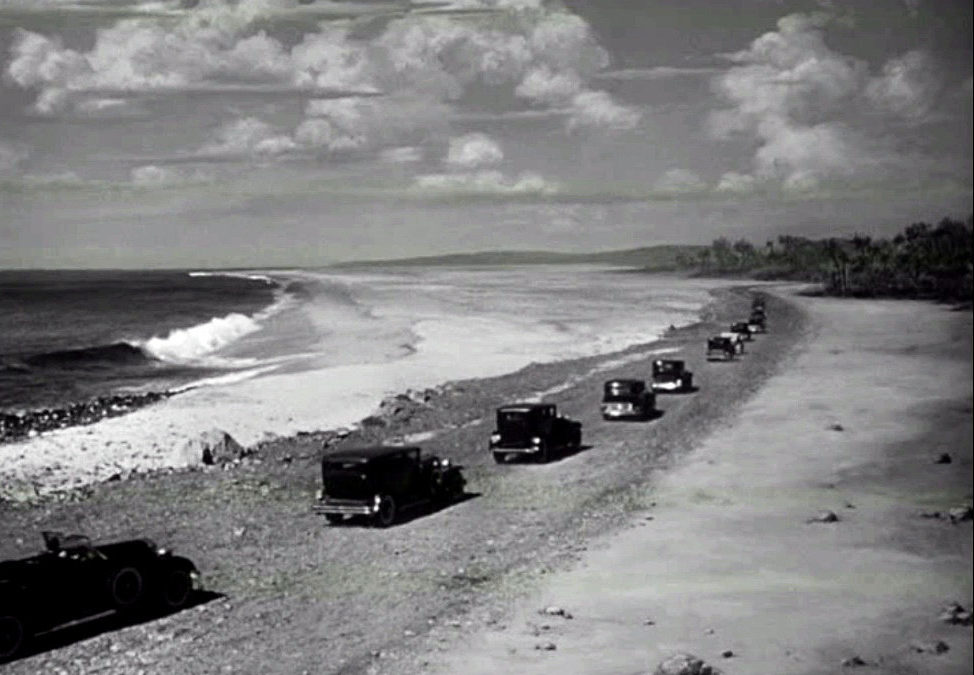Only 2:07 seconds of screen time, but it’s an unpleasant crackling picnic that ends with a slap in the face. Despite the southern Florida heat, Charles Foster Kane and Susan Alexander are lounging by a crackling fireplace in Xanadu, their palatial estate: he in front of the fire; she at the other end of the room doing a jigsaw puzzle.

Both are bored with each other, and in an attempt to revitalize his floundering relationship, Kane suggests a picnic. “I thought we might have a picnic tomorrow,” he says, “it might be a nice change after the Wild West party tonight. Invite everybody to go to the Everglades.” Alexander is not interested; “Who wants to sleep in tents,” she retorts, “when they have a nice room of their own – with their bath, where they know where everything is?”
Their guests are transported to the picnic in black sedans and trucks that roll along the edge of the surf like a funereal cortège.
At Xanadu, Kane’s camp in the Everglades, the staff erects tents for dining, a dance floor, a kitchen for preparing food, and a white-clad chef spit-roasting a whole pig.
The song is an ironic choice because Kane and Alexander’s marriage is no longer loving, and it’s rapidly disintegrating. Guests mingle listening to a jazz band playing “It Can’t Be Love.” instead of mingling and dancing, they are alone in a separate tent, miserably arguing so intently that Kane slaps Alexander. “Don’t tell me you’re sorry,” she snaps, to which he responds, “I’m not sorry.”

The cast: Orson Welles as Charles Foster Kane; Dorothy Comingore as Susan Kane; Joseph Cotton as Jedidiah Leland; Everett Sloan as Mr. Bernstein; Paul Stewart as Raymond
See Orson Welles. Citizen Kane (1941). Screenplay by Orson Wells and Herman J. Mankewicz; Robert Carringer. The Making of Citizen Kane (Berkeley: University of California Press, 1985; Peter Bagdanovich and Orson Welles. New York: HarperPerennial, 1992; Randy Loren Rasmussen. Orson Welles: Six Films Analyzed, Scene

